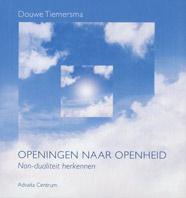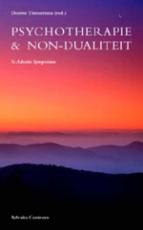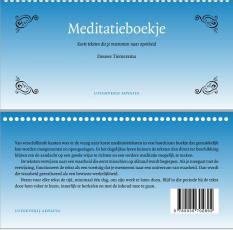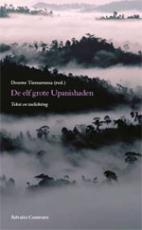Advaita Post 10-19 - In freedom there is no concern any longer for the 'I'
Volume10 Number 19 (November 24, 2009)
--- In freedom there is no concern any longer for the 'I' ---
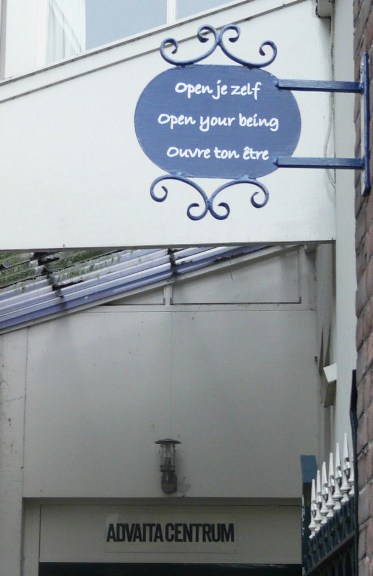
From a talk on Sunday, November 15, 2009 Bruges
Notes by Danny
Usually your attention is a focused awareness upon an object. The focus of your attention during daily activities goes everywhere. That form of attention is a narrowing of consciousness; it is a self-tension.
When you quietly sit, you turn your attention back to the source. There is then a return to yourself. The focus of attention turns back to its source in yourself. This causes an expansion and a deep relaxation.
That is exactly what happens when you sleep, but you are usually not aware of it. During sleep you return to yourself and you sink away in a pleasantly deep relaxation. If you stay internally alert there, then you know that it is an infinite opening.
Return to the infinite relaxation in clarity. Through the relaxation every separation disappears. In your more expansive sphere, you discover that conditioning is not necessary. Your whole being sphere becomes universally open in a refined way. There is a turning within and an opening in the meditative sphere. Then there is nothing more to say about the self other than it is open; it is an open sphere of awareness and bliss.
Take a look at how it is with yourself. When are you most yourself?
By returning to yourself you experience a relaxation. Confirm that very clearly.
Everyone regularly has being-experiences. Only if you're not aware of them, it's very fleeting. Be internally aware of your own situation.
Let all phenomena loose in the openness of yourself. Your physicality is often gone; now and then it comes back up again. Then it is clear: your physical situation is very relative. From self-being it is also clear that time can arise and disappear once again. See the relativity of the space-time aspect. You yourself are not imprisoned by time and space. Your self-being is a higher reality that there is free of it.
You yourself are universal. You are yourself in that infinite space.
Turn the attention inwards, bring the object to the subject, to the source of attention, the core of yourself. Then an expansion enters and the falling away of separations. With the return to yourself all contradictions and conflicts resolve. Take care that you don't get caught once again in structures.
Primarily there is a self-being that is open and relaxed. Secondarily there are the forms and structures. Don't lose yourself within them. Let your self-being remain open. Then the forms remain transparent. Your reality is not limited by time and space. Recognize the wonderful openness. Clearly confirm this infinite free-being. Stay in the state of wonderful openness.
Thus the old identity disappears. The belief in a limited identity is an illusion. Whatever happens, take care that you don't identify with anything, don't limit yourself. Stay in that pleasant relaxation.
If there is pain, don't confine yourself to that pain, but stick to your greater self-being. Don't identify with the pain. The pain is certainly there, but you are not that pain.
If you have identified with your body, then you are susceptible to it's blackmail. If you are free, then you are also free of physical identity.
Stick to the universal presence and don't limit yourself. In freedom there is no concern any longer for the 'I'. In freedom there are no selfish motives any longer. There, where the personal structure disappears, miracles occur.
Er is geen tweeheid
als je ontspannen bent
in zelf-bewustzijn
is dat duidelijk.
Boeken
Douwe schreef en redigeerde gedurende zijn leven boeken. Via onze uitgeverij zijn deze nog verkrijgbaar.
